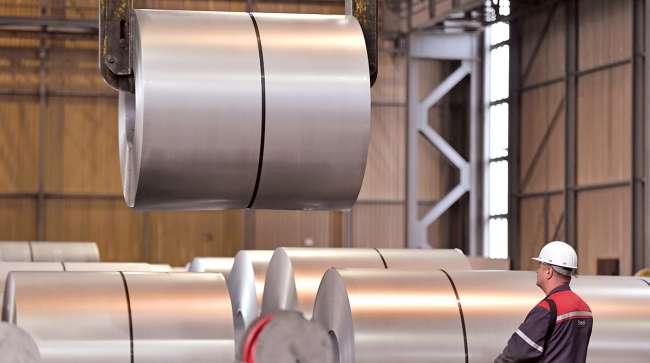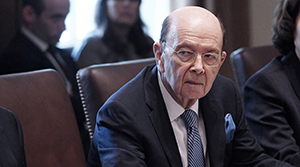Senior Reporter
Senators Press Commerce Secretary on National Security Approach to Tariffs

WASHINGTON — Senators on the Finance Committee questioned the Trump administration’s national security argument for pursuing steel and aluminum tariffs, a move Commerce Secretary Wilbur Ross staunchly defended at a hearing June 20.
“I wish we would stop invoking national security ’cause that’s not what this is about. This is about economic nationalism and an economic policy of managing trade,” Sen. Pat Toomey (R-Pa.) told the secretary.
Toomey’s legislation with fellow Republican Sen. Bob Corker of Tennessee that would give Congress veto power over tariffs based on national security concerns has failed to advance.
Ohio Republican Rob Portman echoed the sentiment, stressing the administration’s national security argument would be hard to demonstrate before the World Trade Organization. He also emphasized his state would be hard-hit by any Canadian retaliatory tariffs.

Commerce Secretary Wilbur Ross. (Olivier Douliery/Abaca Press/TNS)
“My point is not that we don’t have a need to balance trade. It is what tools we use. And if you use [Section] 232, which I look back at the legislative history, it’s only been used three times since the 1960s when it was written. It hasn’t been used in over 30 years because other Commerce departments have said this is not a national security concern,” Portman said.
Committee Chairman Orrin Hatch of Utah explained to the secretary that small businesses would be hit financially by the tariffs.
“You are taxing American families. You are putting American jobs at risk. And you are destroying markets, both foreign and domestic, for American businesses of all types, sorts and sizes,” Hatch said.
As expected, Ross defended the tariffs. As he put it, “The tariff actions taken by the president are necessary to revive America’s essential steel and aluminum industries. They have been harmed by imports to the point that allowing imports to continue unchecked threatens to impair our national security.”
Through executive orders, President Donald Trump directed the Commerce Department to examine steel and aluminum imports under Section 232 of the Trade Expansion Act. The conclusion the department reached was that foreign-made steel and aluminum are security threats that increasingly prompt a dependence on foreign-made metals commercially and militarily.
By resorting to the national security provision, Canada and the European Union were levied tariffs of 25% on imported steel and 10% on imported aluminum.
Trump recently called on the department to also ascertain whether light trucks, as well as auto parts, classify as a national security threat under Section 232.
In the meantime, China and Mexico have imposed certain retaliatory tariffs. Canada and the European Union intend to do likewise.
Besides debating tariffs, committee ranking Democrat Ron Wyden of Oregon took issue with Ross’ finances internationally, which the senator said could amount to multiple conflicts of interest.
“You don’t need a thick government rulebook to recognize flagrant conflicts of interest when they’re brought into public view. And when it comes to trade, Americans have a right to know it’s their best interests Trump administration officials are looking out for at the negotiating table,” Wyden said. “The stories that we have seen in the last few days call that into question.”




